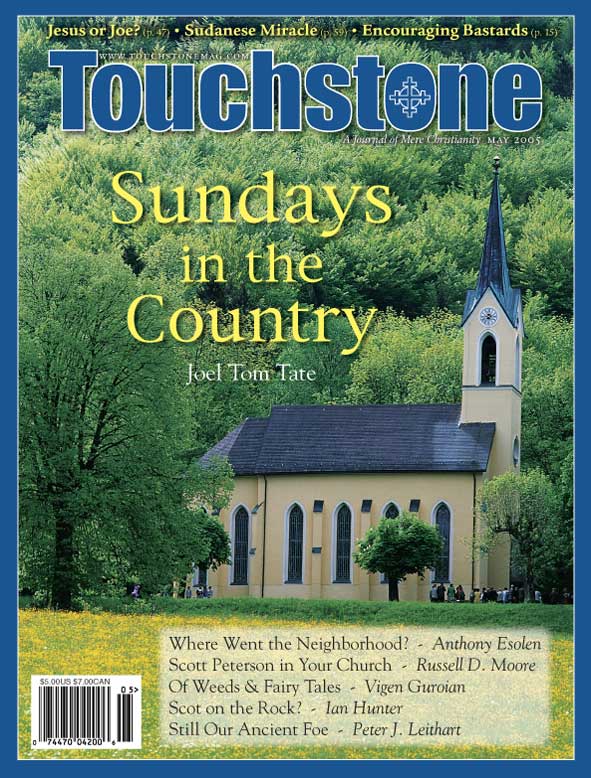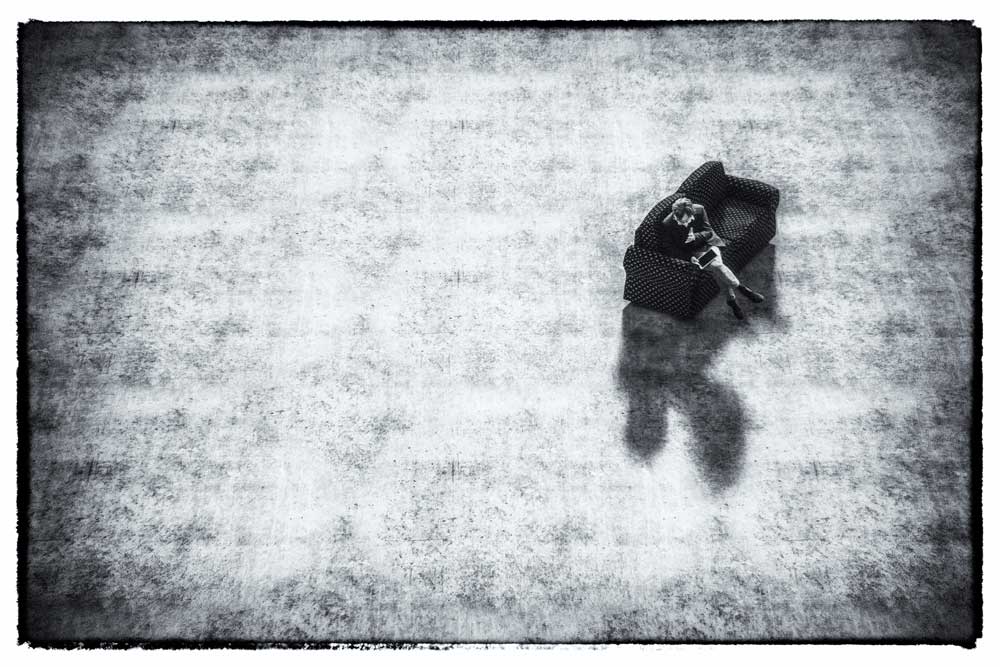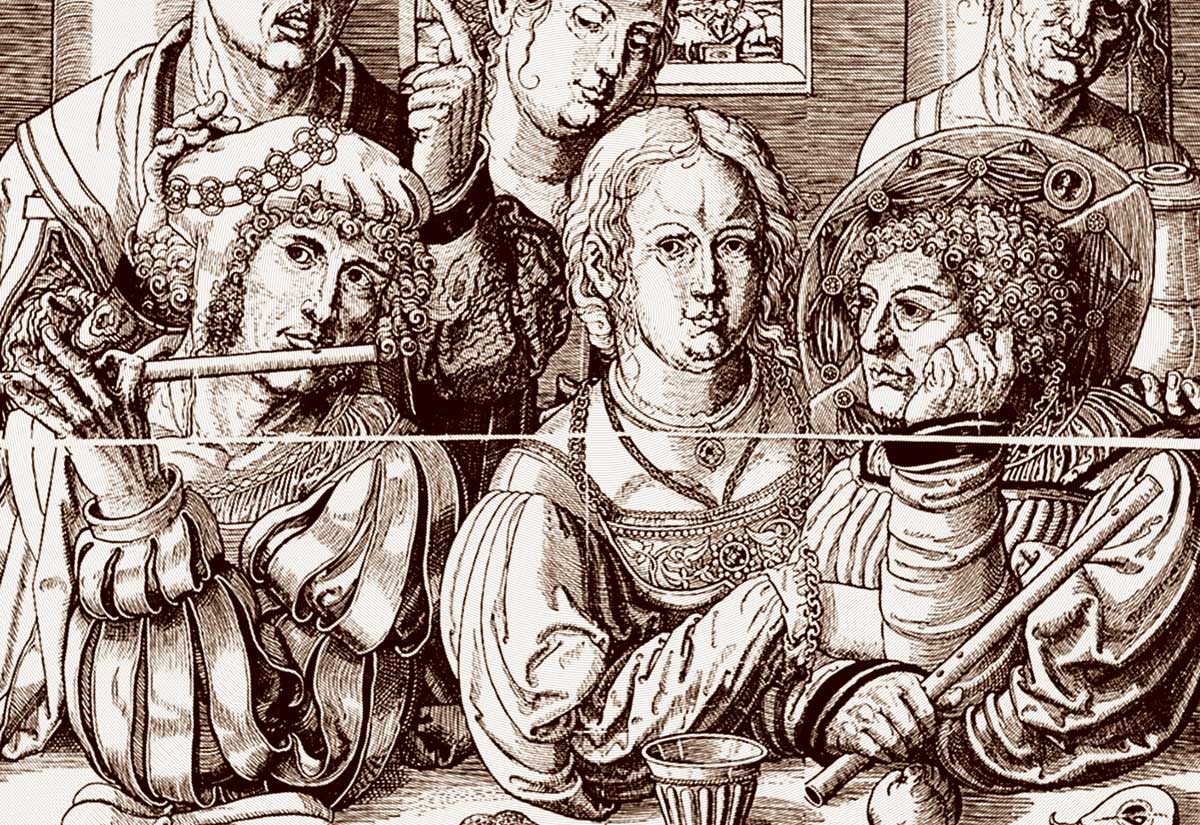Feature
Still Our Ancient Foe
Why Enmity Is Crucial to Peace
Near the middle of The Anti-Christ, Nietzsche mocks Ernst Renan’s life of Jesus for attempting to convince the world that Jesus was a “hero.” Nothing, Nietzsche said, was less evangelical than heroism, for “What the Gospels make instinctive is precisely the reverse of all heroic struggle, of all taste for conflict: the very incapacity for resistance is here converted into something moral: (‘resist not evil!’—the most profound sentence in the Gospels, perhaps the true key to them), to wit, the blessedness of peace, of gentleness, the inability to be an enemy.”
While Nietzsche meant this as an attack on Christianity, many Christians would agree, and see it as one of the chief virtues of Christianity that it deprives men of the ability to be enemies. Liberal theology means many things, but one of its central themes is the denial of enmity, and especially the denial that God has enemies.
On this score, however, “conservative” Evangelicals are often on the same page as liberals. Nowhere is this more evident than in hymnody, always a key barometer of theology and piety. Someone raised on nineteenth-century revival hymns will be surprised by the prominence of enemies in the Psalms, and by the Psalmists’ militant reaction to them. For many Christians, Nietzsche’s description is precisely accurate.
Eliminating the category of enmity from social and political theory has been one of the grand projects of modernity. The liberal political imagination, inspired by Kant’s 1795 treatise on perpetual peace as well as by the British philosophers John Locke and Adam Smith, insists that men act rationally to achieve their own interests. An enemy who seeks to harm even against his own best interests is a surd, a pure irrationality.
Liberalism’s Mission
Liberalism can make no sense of the enemy, and so converts the enemy into something else. The enemy becomes “a competitor” in economics and “a debating adversary” in intellectual matters, noted the German Catholic political theorist Carl Schmitt. Sociology and anthropology re-imagine the enemy as the “outsider” or the “stranger,” as a member of an “out-group,” while postmodern philosophy is obsessed with the “other.”
When liberal modernity has not simply ignored the existence of the enemy, it has denied the existence of enmity that cannot be cajoled, co-opted, convinced, or smilingly coerced into becoming an ally. Economists have offered a “heaven on earth” through rising standards of living or expansion of trade, and this earthly heaven is a heaven of peace: Put a McDonald’s and a Gap in every major Middle Eastern city, and terrorism will drown in a wave of Happy Meals.
Strangely, it is not just abstract theorists who hope for a world without enemies, but supposedly pragmatic politicians, even in the aftermath of the attacks of September 11, the Madrid bombings in March 2004, and the constant terrorist acts in Iraq. In his highly acclaimed little book, Of Paradise and Power, Robert Kagan noted that after World War II, “European strategic culture” set out on a program of “conscious rejection of the European past, a rejection of the evils of European Machtpolitik.”
As Joschka Fischer, Germany’s Foreign Minister, put it, “The core of the concept of Europe after 1945 was and still is a rejection of the European balance-of-power principle and the hegemonic ambitions of individual states that had emerged following the Peace of Westphalia in 1648.” What makes this proposal so attractive is that it has a track record of notable successes. Kagan noted that
it is the integration and taming of Germany that is the great accomplishment of Europe—viewed historically, perhaps the greatest feat of international politics ever achieved. . . . European life during the more than five decades since the end of World War II has been shaped not by the brutal laws of power politics but by the unfolding of a geopolitical fantasy, a miracle of world-historical importance: The German lion has lain down with the French lamb.
Peter J. Leithart is an ordained minister in the Presbyterian Church in America and the president of Trinity House Institute for Biblical, Liturgical & Cultural Studies in Birmingham, Alabama. His many books include Defending Constantine (InterVarsity), Between Babel and Beast (Cascade), and, most recently, Gratitude: An Intellectual History (Baylor University Press). His weblog can be found at www.leithart.com. He is a contributing editor of Touchstone.
bulk subscriptions
Order Touchstone subscriptions in bulk and save $10 per sub! Each subscription includes 6 issues of Touchstone plus full online access to touchstonemag.com—including archives, videos, and pdf downloads of recent issues for only $29.95 each! Great for churches or study groups.
Transactions will be processed on a secure server.
more from the online archives
calling all readers
Please Donate
"There are magazines worth reading but few worth saving . . . Touchstone is just such a magazine."
—Alice von Hildebrand
"Here we do not concede one square millimeter of territory to falsehood, folly, contemporary sentimentality, or fashion. We speak the truth, and let God be our judge. . . . Touchstone is the one committedly Christian conservative journal."
—Anthony Esolen, Touchstone senior editor











